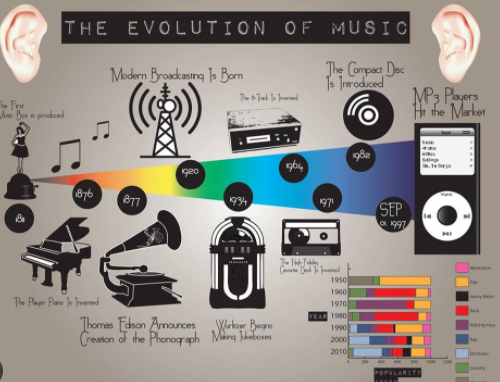Rauf Hameed: Music, the Universal Language
Ah, music—the universal language that transcends barriers, weaving its way through cultures, emotions, and time itself. From the rhythmic beats of ancient drums to the symphonic masterpieces of today, music has been an intrinsic part of human existence. Its melodies echo through the corridors of history, shaping societies, expressing emotions, and serving as a reflection of the human experience.
The Language of Emotions
At its core, music is an emotional journey. It has an unparalleled ability to evoke feelings, transporting us to different mental landscapes. From the euphoria of a catchy pop tune to the melancholy of a soulful ballad, music has the power to mirror our emotions and resonate within us.
Neuroscientific studies have delved into the profound impact of music on the brain. It activates various regions, triggering the release of neurotransmitters like dopamine, which is associated with pleasure and reward. This neurological dance explains why a particular song can bring forth memories, uplift our spirits, or even bring tears to our eyes.
A Tapestry of Genres
One of the most enchanting facets of music lies in its diversity. Across continents and cultures, a kaleidoscope of genres has emerged, each with its unique flavor and narrative.
- Classical: The grandeur of symphonies and the delicate beauty of sonatas resonate through centuries, epitomizing the elegance and complexity of classical music. Masters like Mozart, Beethoven, and Bach have left an indelible mark on this genre.
- Jazz: Born in the heart of America, jazz is a musical embodiment of improvisation and soul. Its syncopated rhythms and improvisational nature make it a living, breathing art form, with legends like Louis Armstrong and Miles Davis shaping its evolution.
- Rock: With its electrifying guitars and anthemic choruses, rock music emerged as a rebellious force. From the revolutionary sounds of Elvis Presley to the stadium-shaking performances of Queen and Led Zeppelin, rock has been a cultural cornerstone.
- Hip-Hop: Rooted in urban culture, hip-hop emerged as a platform for social commentary and self-expression. Its rhythmic verses and innovative beats narrate stories of struggle, resilience, and triumph. Icons like Tupac Shakur and The Notorious B.I.G. propelled this genre into the mainstream.
- Electronic: Fueled by technology, electronic music reshaped the sonic landscape. From the pulsating beats of techno to the immersive sounds of ambient music, electronic genres push the boundaries of what music can be, inviting listeners into sonic worlds unexplored.
Music as Therapy
Beyond entertainment, music possesses therapeutic qualities that soothe, heal, and uplift. Music therapy has gained recognition for its ability to aid in mental health treatments, alleviate stress, and even enhance cognitive functions. Whether it’s creating music or simply listening, its therapeutic effects are profound, offering solace in moments of despair and joy in times of celebration.
The Evolution of Music in the Digital Age
The digital revolution has reshaped how we create, consume, and share music. Streaming services, social media platforms, and digital audio workstations have democratized the music industry, allowing aspiring artists to reach global audiences with a click.
However, this technological leap also poses challenges, with debates over artist compensation, copyright issues, and the ever-evolving nature of online distribution. Yet, it has undeniably opened doors for creativity and collaboration, fostering a global community of music lovers and creators.
Music as a Cultural Tapestry
Moreover, music serves as a cultural tapestry, interwoven with traditions, rituals, and identities. Folk music celebrates heritage, preserving stories passed down through generations. Meanwhile, fusion genres blend cultural influences, creating harmonious amalgamations that bridge diverse traditions.
The Future Harmonies
As we navigate an ever-changing world, the future of music holds endless possibilities. Advancements in technology, the exploration of new sounds, and the fusion of genres are poised to redefine the musical landscape. Virtual reality concerts, AI-generated music, and immersive audio experiences hint at a future where boundaries blur, and creativity knows no limits.
In essence, music remains a timeless companion, evolving alongside humanity, painting the soundtrack of our lives with melodies that echo through the ages. Its power lies not just in the harmonies and rhythms but in its ability to connect hearts, transcend differences, and speak the language of the soul.

No responses yet